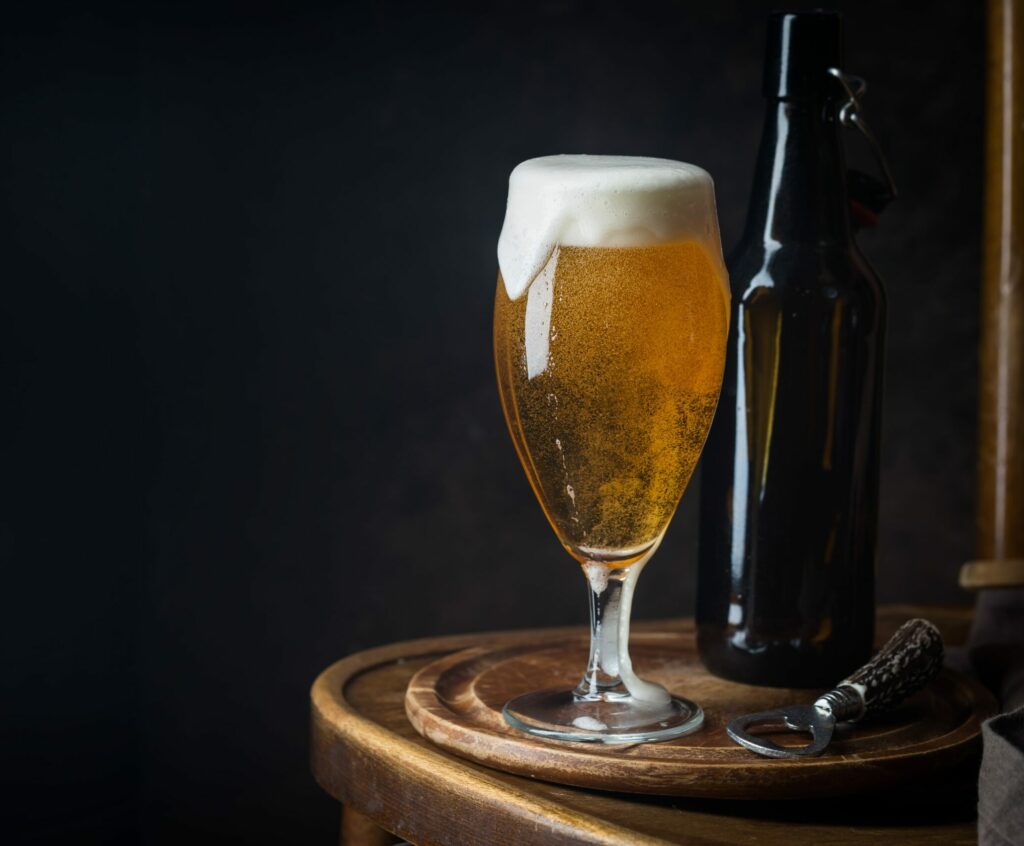Wherever BrewDog seem to go in terms of its intellectual property strategy, controversy and legal battles seem to follow.
In a recent UK Intellectual Property Office trade marks tribunal decision, the hearing officer refused to allow the registration of two new BrewDog trade marks, relating to its cider offering under its ‘Hawkes Cider’ brand.
What were the proposed trade marks?
On 18 May 2021 BrewDog plc applied to register the trade marks shown below:
- UK00003643420 – HAWKES SLIM CIDER
- UK00003643417 – HAWKES PINEAPPLE PUNCH
Registration was sought for the following goods in classes 32 and 33:
Class 32: Non-alcoholic beverages; non-alcoholic cider; beers; mineral and aerated waters and other non-alcoholic beverages; fruit beverages and fruit juices; syrups and other preparations for making beverages; ale; real ale; lager; stout; porter; flavoured beers; ginger beer; malt beer; apple beer; beer wort; extracts of hops for making beer.
Class 33: Alcoholic beverages [except beers]; cider; flavoured ciders; beer-flavoured cider; spirits; liqueurs; distilled beverages; pre-mixed alcoholic beverages, other than beer-based; pre-mixed alcoholic cocktails.
Why did Hawkshead Brewery oppose BrewDog’s trade mark applications?
Hawkshead Brewery Ltd, based in the Lake District, opposed both applications based on its earlier registered trade marks:
UK00003348684 – HAWKSHEAD
Class 32: Beers, ales, lagers; non-alcoholic beverages; de-alcoholised beverages; tonic waters; fruit juices; waters.
Class 33: Alcoholic beverages (except beers); spirits; gin; vodka; rum; whisky.
UK00002305911 – HAWKSHEAD BREWERY
Class 32: Beers.
The opponent raised several grounds of opposition, but was only entirely successful based on one of these. Under Section 5(2)(b) of the Trade Mark Act 1994, the opponent claimed that the applications should be refused because there is a likelihood of confusion between the trade marks arising from the similarity of the marks and the identity/similarity of the goods for which the respective marks were registered/applied for.
Interestingly, the opponent also referred to a previous UKIPO decision (BL-O-232-21) involving the same parties where it had already been found that the marks ‘HAWKSHEAD’ and ‘HAWKES’ were confusingly similar.
How was the decision reached?
The applicant had admitted that the goods of the applications and the earlier marks were identical, except for the following: syrups and other preparations for making beverages; beer wort; extracts of hops for making beer in class 32.
The hearing officer still found these non-identical goods in the application to be similar to the earlier marks’ goods to a low to medium degree, considering a possible overlap in producers, distribution channels and relevant public, and a limited degree of competition with the goods covered by the opponent’s trade marks.
The hearing officer found that for the types of goods covered by the trade marks, the relevant average consumer from whose perspective confusion is to be assessed, is a member of the general public, who, for the alcoholic goods at issue, is over the age of 18. They are likely to pay a medium degree of attention during the purchase of goods, as they will wish to ensure that they are selecting a preferred type, strength, or flavour, before committing to the purchase.
The hearing officer found the goods to be visually and aurally similar to a medium degree, noting that the common and most distinctive element is placed at the beginning of the marks, and the initial part of word marks attracts the attention of the consumers more than what follows. The hearing officer also found the marks to be conceptually similar to a high degree, as both would evoke reference to the hawk bird, despite the applicant arguing that Hawkshead is a reference to the brewery’s location in the Lake District – the officer found that whilst some consumers may be aware that Hawkshead is a place, a significant proportion of consumers will not.
What was the outcome?
Considering all of the above, the hearing officer found that there was a likelihood of indirect confusion, in relation to both marks applied for, and all of the contested goods, at least for the group of consumers who will not perceive the earlier mark as a geographical location.
In the hearing officer’s opinion, when encountering the word ‘HAWKES’ in the applied for marks, the average consumer is likely to misread it or mistake it for the earlier ‘HAWKS’ marks, and believe that they are related brands.
Indirect confusion arises when the consumer has actually recognised that the later mark is different from the earlier mark, but they nevertheless believe them to be related. By contrast, direct confusion involves no process of reasoning – it is a simple matter of mistaking one mark for another.
BrewDog’s trade mark applications were therefore refused in their entirety.
Points to note from the decision
The decision is interesting as BrewDog does own several registered trade marks relating to the Hawkes cider brand, so it remains to be seen if Hawkshead Brewery now seek to revoke those trade marks in a separate action, and/or bring action for infringement of its Hawkshead trade marks as a result of BrewDog’s use of the Hawkes brand on its products.
It also shows that just because an applicant already owns various trade marks relating to a brand, it does not mean that any new applications relating to that brand will proceed to registration without objection by third parties with earlier rights in similar brands.
Further, the decision shows that adding non-distinctive and/or descriptive elements to a word mark application (such as ‘SLIM CIDER’ and ‘PINEAPPLE PUNCH’ here), may still result in a finding of a likelihood of confusion with an earlier mark, where earlier comparisons without the additional wording resulted in findings of sufficient similarity (for example the earlier HAWKES v HAWKSHEAD decision here).
The decision also shows how breweries/cideries should consider earlier existing trade marks of not just their own specific type of alcoholic drink, but also other drinks. Here, Hawkshead Brewery do not sell cider, yet ‘beer’ was found to be sufficiently similar to cider (and other drinks) to succeed against the whole specification of goods applied for by BrewDog.
One further point is that the decision shows that even proceedings via the UKIPO tribunal route, rather than in the UK intellectual property courts, can take some time to reach an ultimate decision. Here the trade marks were applied for in May 2021, and the decision was not published until April 2023, almost two years later.
The decision does however demonstrate the difference in costs recovery between the tribunals, as BrewDog’s contribution to Hawkshead’s legal fees was a total of £1,500, which is likely to be significantly less than the brewery incurred in fighting against the trade mark registrations.
For further advice and guidance on trade marks in the brewing industry, please see Danny’s previous article on the topic.
Do you want to protect your own brand?
We know that trade marks help to differentiate your products and services from those of your competitors, which is why our experienced team of intellectual property specialists can help you to preserve the reputation that you have built up over many years.
If you need any guidance or support with protecting your brand, or enforcing your trade mark rights, then don’t hesitate to contact Danny Kelly or another member of our intellectual property team.







